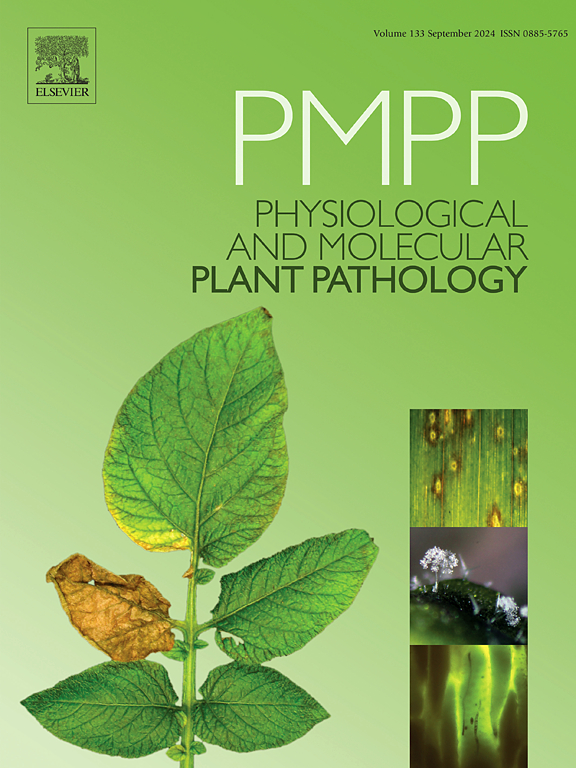葡萄胁迫生物学中的组学技术:气候变化下的分子洞察与可持续葡萄栽培
IF 3.3
3区 农林科学
Q2 PLANT SCIENCES
引用次数: 0
摘要
由于气候变化导致葡萄面临越来越多的生物和非生物挑战,全球葡萄栽培面临着重大威胁。本文讨论了葡萄中生物因子和非生物因子之间复杂的相互作用,强调了综合研究的必要性。本文综述了利用基因组学、转录组学、蛋白质组学、代谢组学、离子组学和表型组学等组学技术对葡萄逆境响应和适应的综合研究。这些多组学方法所取得的进展揭示了胁迫信号、抗性基因和代谢变化的一些相关途径,为开发气候适应型葡萄品种和改善葡萄园管理提供了目标。本文综述了这一领域的最新进展以及组学方法在不断变化的环境下实现可持续葡萄栽培的应用前景。本文章由计算机程序翻译,如有差异,请以英文原文为准。
Omics technologies in grapevine stress biology: bridging molecular insights and sustainable viticulture under climate changes
Global viticulture faces important threats due to climate change as it leads to increased biotic and abiotic challenges for grapevines. The complex interaction between abiotic and biotic factors in grapevines has been discussed, emphasizing the need for integrated research. This review highlight the integrated view on grapevine response to stress and adaptation and it can be obtained through the application of omics technologies where genomics, transcriptomics, proteomics, metabolomics, ionomics and phenomics are highly studied. The progress achieved in these multiomics approaches has revealed some of the involved pathways for stress signaling, resistance genes, and metabolic changes, offering targets for developing climate-resilient grapevine varieties and improving vineyard management. This review integrates the most recent updates in this area and the future of the application of omics approaches to achieve sustainable viticulture under changing environmental scenarios.
求助全文
通过发布文献求助,成功后即可免费获取论文全文。
去求助
来源期刊
CiteScore
4.30
自引率
7.40%
发文量
130
审稿时长
38 days
期刊介绍:
Physiological and Molecular Plant Pathology provides an International forum for original research papers, reviews, and commentaries on all aspects of the molecular biology, biochemistry, physiology, histology and cytology, genetics and evolution of plant-microbe interactions.
Papers on all kinds of infective pathogen, including viruses, prokaryotes, fungi, and nematodes, as well as mutualistic organisms such as Rhizobium and mycorrhyzal fungi, are acceptable as long as they have a bearing on the interaction between pathogen and plant.

 求助内容:
求助内容: 应助结果提醒方式:
应助结果提醒方式:


